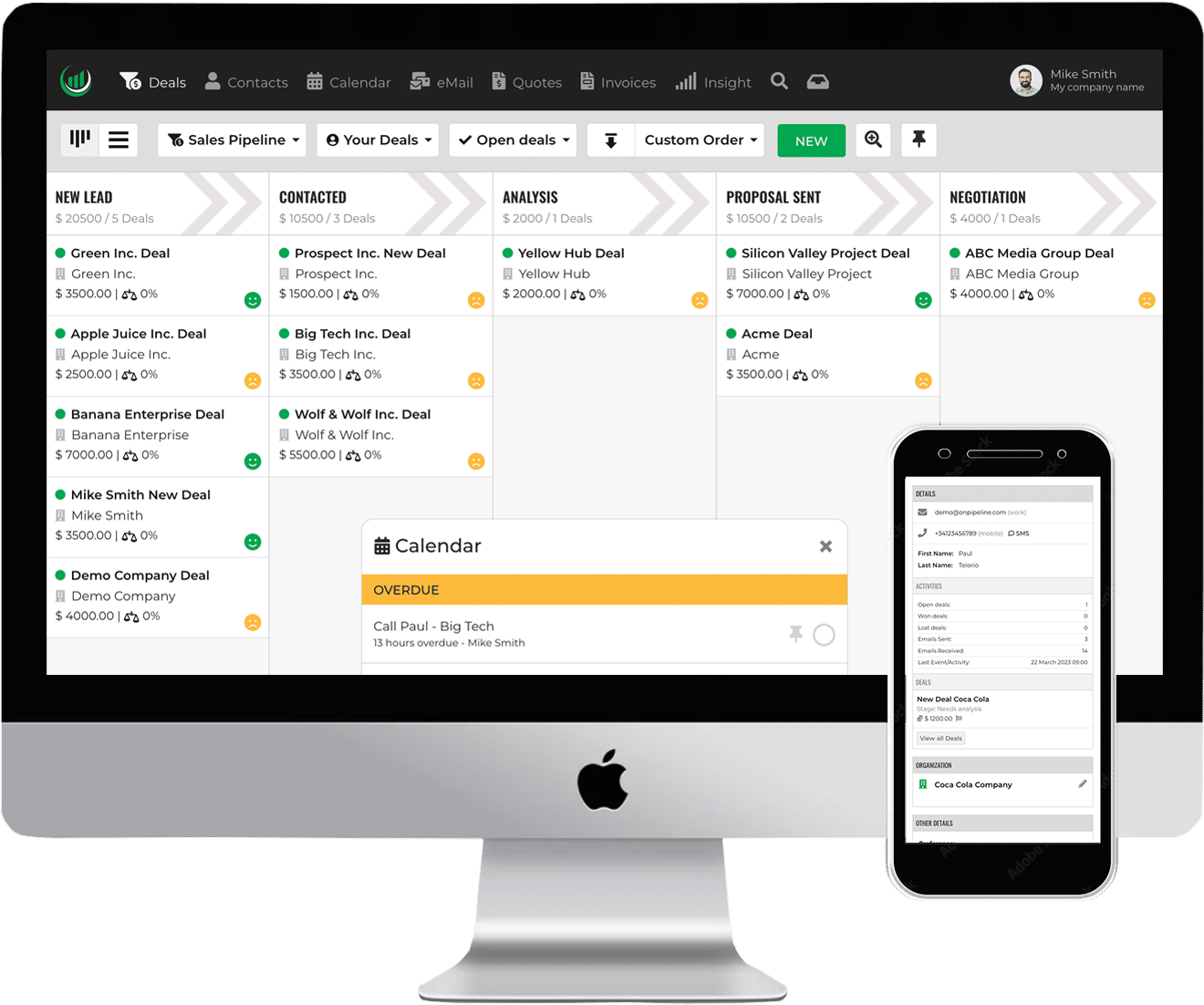Sales commissions are vital to appreciate your hardworking employees, they can stay longer and work harder to boost productivity.
However, there are certain roadblocks you might hit when creating a perfect sales commission plan. The best commission plan is based on your company’s requirements and workflow. Hence, it’s crucial to consider the best sales incentive model and discover all the key aspects to cover.
A Sales Commission Plan can be an effective tool to motivate employees and foster healthy competition among them. However, it’s vital to ensure that the commission structure should be well-made, fair, and transparent. Outline your company’s budget and workflow, and then move further to creating a final copy.
Ensure your employees are well-aware of the criteria for earning commissions to avoid any disagreement later on. Developing a sales commission plan requires careful planning and constant tweaking, but it will pay off greatly and be worth the effort.
Wondering if building an incentive model worth the effort? Read this comprehensive guide and learn about all essential aspects associated with the sales commission concept.
Sales Commission Plan – What is it?
Let’s outline the definition of a sales commission plan to gain the proper perspective on this approach.
As the name suggests, Sales Commission is an incentive that a company pays sales reps for every deal they close. Sale is a competitive profession. Hence, it’s vital for organizations to constantly motivate their team to outsell the competition and propel their business forward.
The best way to keep your sales team motivated is to reward their hard work and victories through a sales commission. It is a monetary incentive to encourage salespersons to give their best in every deal and meet their sales quota.
While the concept looks pretty effortless, the reality is quite different. Not every deal is identical, and so does the commission. Sales Managers incentivizing salespeople to meet their target must have a well-thought sales commission plan to avoid misunderstandings and confusion.
There are multiple types of sales commissions; hence, picking the one that syncs well with your company’s budget and workflow is vital. Also, it’s advised not to use unethical models that can eventually cause burnout.
Why Sales Commissions are essential?
Sales commission is standard in many sales roles. It’s primarily used to boost the employee’s morale, reward sales reps for strong performance, and drive sales. Commissions can also influence sales team strategies, encouraging them to close more deals.
However, employing this approach isn’t as simple as it may sound. That’s why most businesses are still reluctant to follow this model.
Wondering whether to follow commission-based incentives or pay all your sales employees equally? Here, we have outlined some practical reasons to opt for a sales commission model to simplify your decision.
Motivate the sales team
Sales and marketing are challenging, where employees face high competition, rejection, and indifference to the product. And still, companies expect them to keep moving and put the client before their interest and self-confidence. That’s where a sales commission plan comes in handy.
It boosts employees’ morale and helps them continue their job without feeling demoralized. Hence, instead of opting for an equal salary, pay your hardworking members a bit extra through well-spelled-out incentives and rewards.
Having a sales commission plan not just helps you reap optimum results but also saves your business time and money on employee turnover.
Boost employee engagement
No matter how much verbal appreciation you offer to boost your sales team’s confidence, it can never match the monetary incentive. Also, there’s no second thought that sales commissions make employees feel valued and make them more contended with their jobs.
Since employee engagement boosts overall performance, it eventually helps your business thrive and can take you to the winning end. There’s always a significant gain in measuring the sales pipeline performance. Hence, companies should have a solid and competitive sales commission plan to enhance productivity.
Create healthy competition
Undoubtedly, commissions create an atmosphere of healthy competition, and it further optimizes the team’s performance. There are assumptions that monetary incentives result in rivalry among employees. But it’s all about the matter of perspective.
In general, Sales Commissions induce healthy competition in any organization and motivate sales reps to win every battle and seal all the deals they come across. It also creates a peer-to-peer comparison, allowing employees to see how their colleagues are performing. It simply encourages them to push their boundaries and achieve better results.
The major types
Multiple types of sales commission plans are available. But employers must choose the option that fits their organization’s workflow, the type of product or service they sell, and the total number of salespeople in the team.
Here’s a quick rundown of the common types of sales commission structures that companies generally use.
1. Revenue
Employers using this plan pay their sales team a certain predetermined percentage of each sale they make in addition to their base salary. This structure is commonly used by smaller companies that sell singular, high-value items.
2. Tiered
In this plan, the sale percentage the salesperson earns increases with the total sale. Companies generally use a tiered structure to motivate employees to outperform their initial sales goals. This method allows sales reps to set their commission rates easily.
3. Gross Margin
It is pretty similar to the revenue commission plan in that the salesperson earns a certain percentage of the sale. However, the percentage is calculated by subtracting overhead costs associated with the sale from the sale price. This approach suits companies that sell high-value and precious items but incur massive internal costs during the transaction process.
4. Draw Against Commission
This method helps ease the financial burden on employees if they experience a slow sales month. In the Draw Against Commission approach, an employer offers an assured commission payout with each paycheck. It works as both a payment and a loan. It is best suited for those businesses affected by seasonal sales trends.
5. Straight Commission
In the Straight Commission method, the only income of the salesperson is from the commission he earns. They don’t get any guaranteed base pay from their employer. This approach is often adopted by companies with short and uncertain sales cycles.
6. Residual Structure
This method implies that sales reps earn continued commissions based on the long-term value of individual accounts. They make sales percentages on an ongoing basis as long as those accounts continue to generate revenue for the organization.
How to Create a Sales Commission Plan?
Now that you know everything about sales commission, it’s time to create a final copy to avoid any fuss in the future. Unsure about how to start? Here’s a comprehensive guide covering the step-by-step process to put an effective sales commission structure in place.
Review annual sales goals
Since sales goals are the benchmark for your department, it’s best to review them beforehand. These goals reflect what the business wants and how the sales team can help get it here.
Sales goals also show a clear picture of the total revenue your sales team generates. Use these goals as a foundation before you make any decision about the commission.
Evaluate the role of each salesperson
Every sales rep is unique. And the longer they’re with your company, the more personalized their role will become. To draft a sales commission plan, review their roles and contributions. Also, dig deeper into the way your team leads and closes sales. It helps you focus on areas where the commission plan can be most influential.
Check KPIs for each sales position
KPIs are another team motivator, as they help your sales team members measure their performance with CRM and deal management tools. Showcasing numbers, like deal size, win rate, and commission rates, to your sales reps during monthly meetings makes them more engaged.
Develop an initial sales commission plan copy
Once you are done with research, it’s time to put together your plan. Ensure your sales commission structure perfectly balances employees and the organization to benefit both. And don’t expect your first copy to be perfect.
Review the proposal with stakeholders
Spend some time on the presentation of your plan and stay open to suggestions. You might hear feedback you may not like or expect. Update the copy based on recommendations and ideas of other stakeholders. Revisit your plan before it’s ready to launch.
Launch the plan
Timing is very crucial when launching the final sales commission copy. Decide whether you align the release with your company’s fiscal year or start it right away. You may also work with your financial team to set a schedule based on the details in the commission agreement. Once done, begin paying commissions as you’ve drafted in the final copy.


